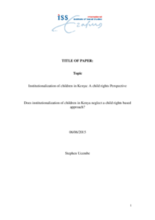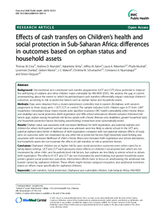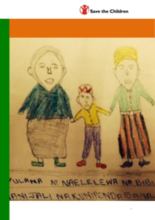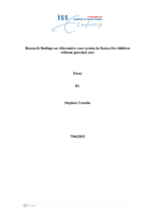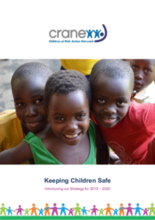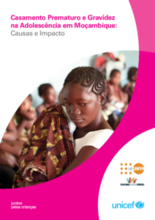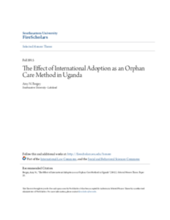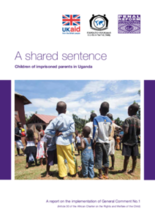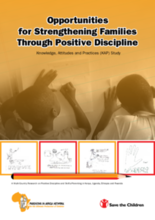Displaying 441 - 450 of 665
This essay examines institutional care not as a structure or facility, but as a model of care and protection for orphans and vulnerable children in Kenya.
This study, conducted in eastern Zimbabwe, addresses the gap in current understanding about the extent to which household-based cash transfers differentially impact individual children’s outcomes, according to risk or protective factors such as orphan status and household assets.
Save the Children extended Kinship Care research begun in West Central Africa in 2012 across East Africa in 2014, and this paper presents the findings for Zanzibar.
This paper examines alternative care in Kenya. The focus will be on the genesis of alternative care; the non- prosaic multiple factors contributing to the situation, situational analysis on data, and child protection frameworks.
This study sought to understand gender differences in potentially traumatic events (PTEs) in orphaned and separated children in 5 low- and middle-income countries (LMIC): Cambodia, Ethiopia, India, Kenya and Tanzania.
As a network, we aim to achieve more by working together for children than by working in isolation.
For the first years of CRANE’s life, the network strove to be the strongest and most effective Christian
network and to see Christians working together in strategic partnerships towards transformational
change for children. By the 10th anniversary, the network had established that platform. Therefore we
are now looking to make our unique contribution much clearer and much more challenging.
Este trabalho teve por objectivo analisar e compreender a magnitude, tendências, determinantes e impactos do casamento prematuro e da gravidez precoce, com o propósito de obter informações para a concepção de uma política nacional.
This literature review addresses how international adoption affects Uganda’s orphan care methods from both micro and macro perspectives.
This research conducted jointly by the Foundation for Human Rights Initiative and PRI assesses to what extent the guidance contained in the 'General Comment on the rights of children when their parents or primary caregivers are in conflict with the law' has been implemented in Uganda, highlighting some of the gaps that need to be filled.
This study intended to develop data regarding how families parent and nurture good behaviour in their children; whether they know what would constitute nonviolent (positive) discipline; and if they actually utilized the positive aspects of disciplining. The study was conducted in specific areas (study clusters) in Kenya, Uganda, Ethiopia and Rwanda.

